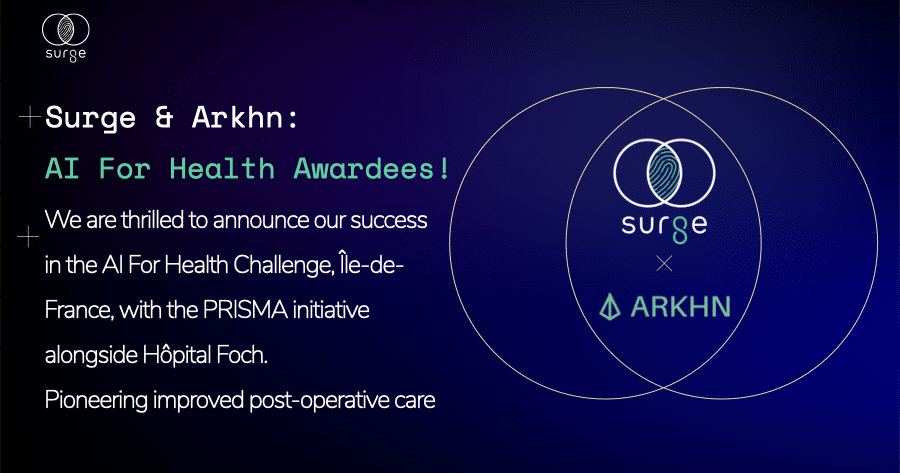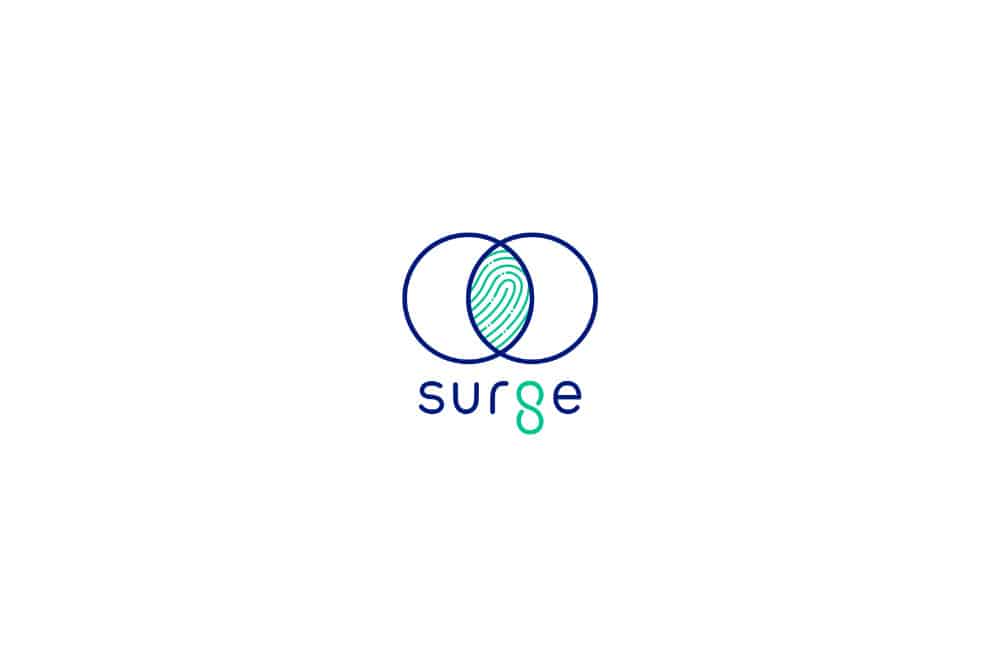Surge's Research Team Celebrates Five Abstracts Accepted for IARS/AUA Conference and Wins Prestigious Award
Paris, France, 25/04/2023 – Surge is proud to announce that our research team has had five abstracts accepted for presentation at the esteemed IARS/AUA Conference. Among these, our primary abstract, titled “An Immune Signature of Surgical Site Infections (SSI), a Retrospective Study with a Novel Machine Learning Pipeline for Biomarker Identification“, has been awarded the prestigious Margaret Wood Resident Research Award. This award is presented to the author of the best research paper submitted by a resident or fellow and will be selected for an oral presentation at the Scientific Advisory Board (SAB) sessions.
Our CEO, Julien Hédou, expressed great pride in the team’s accomplishments, stating, “This recognition at the IARS/AUA Conference demonstrates Surge’s commitment to excellence and our dedication to advancing the field of surgical care. I am incredibly proud of our team’s hard work and innovative spirit, which has led to these groundbreaking discoveries.“
The award-winning study, presented by Dr. Amelie Cambriel, focused on identifying preoperative immune responses that predict surgical site infection (SSI) in patients undergoing abdominal surgery. Dr. Amelie Cambriel shared her enthusiasm, “It is truly an honor to present our findings at the conference and receive the Margaret Wood Resident Research Award. This achievement reflects the dedication of our team and our relentless pursuit of knowledge to
improve patient care.“
This accomplishment holds great significance for Surge as it:
- Validates our prototype for SSI prediction on 93 new patients from a cohort of Stanford patients.
- Demonstrates the successful application of our cutting-edge machine learning techniques to identify an accurate predictive model.
- Highlights the importance and recognition of our research in the field.
New results on SSI
In collaboration with research teams at Stanford, Surge has developed a cutting-edge model that accurately predicts a patient’s likelihood of developing surgical site infections (SSIs) with an area under the receiver operating characteristic (AUROC) of 0.80. The model was created by merging omics datasets and showcases its efficacy in identifying patients susceptible to SSIs without major demographic or clinical variable differences.
The Stabl model’s validity further confirms the princeps study published by our group in Annals of Surgery last year (Rumer, Kristen K., et al.). This groundbreaking research reinforces the importance of pre-operative biological differences in determining a patient’s likelihood of developing an SSI.
A closer look at the Stabl model reveals immune signaling responses and circulating inflammatory mediators closely associated with SSIs. In particular, the study highlights the increased STAT3 signaling response to IL-6 in neutrophils, a key factor found in patients predisposed to SSIs. Additionally, elevated plasma levels of IL-1β and IL-18, two potent inducers of IL-6 production in response to inflammatory stress, were observed in patients with SSIs.
Other proteomic features selected by the model include CCL3, which plays a crucial role in the recruitment and activation of neutrophils, and HSPH1, a well-known stress response protein. These findings align with previous studies demonstrating that intensified innate immune cell responses to inflammatory stress, such as surgical trauma, can weaken a patient’s defense against bacterial pathogens and ultimately increase their susceptibility to infection.
Additional abstracts
Additionally, our team presented four other abstracts at the conference:
- STABL enables reliable and selective biomarker discovery in predictive modeling of high dimensional omics data The study presents a machine learning framework called STABL that unifies biomarker discovery and multivariate predictive modeling for clinical outcomes. The framework is benchmarked against LASSO using synthetically generated datasets and four independent clinical omics datasets. The results show that STABL achieves better selectivity and reliability performances compared to LASSO or stability selection algorithms, and it improves the reliability and electivity of features in real-world single omics and multi-omics studies, facilitating the interpretation of multivariate predictive models.
- Impact Of Preoperative Uni- Or Multimodal Prehabilitation On Postoperative Morbidity: A Systematic Review And Meta-analysis: This study showed that prehabilitation did not significantly affect overall complications or total hospital length of stay but resulted in a shorter ICU stay. The authors recommend targeting prehabilitation programs to patients most likely to benefit.
- An Immune Signature Of Postoperative Cognitive Dysfunction, A Prospective Cohort Study: This research aimed to identify a peripheral immune signature of post-operative cognitive decline (POCD) in elderly patients undergoing major orthopedic surgery. The study presents a promising strategy for the future development of a diagnostic test for POCD to guide individualized care for elderly surgical patients.
- Preoperative Ketamine Administration For Prevention Of Postoperative Neurocognitive Disorders After Major Orthopedic Surgery In Elderly Patients, The Pock Randomized Clinical. The POCK randomized clinical trial aimed to assess the effect of preoperative ketamine administration on postoperative cognitive decline in elderly patients undergoing major orthopedic surgery. The trial was multicenter, randomized, quadruple-blind, and prospective, with patients randomly assigned to receive preoperative ketamine or placebo. The trial results showed that a single preoperative bolus of intravenous ketamine did not prevent the occurrence of postoperative cognitive decline, but it may reduce postoperative depression in elderly patients scheduled for major orthopedic surgery.
Surge’s successful participation at the IARS/AUA Conference and the recognition of our research team’s outstanding work demonstrate our commitment to advancing the field of surgical care and improving patient outcomes. We are honored to contribute to the global scientific community and look forward to further breakthroughs and discoveries.
About Surge
Surge is a biotech company focused on optimizing treatment for patients undergoing surgery. Our multidisciplinary team has developed a test to identify patients at risk for complications. By anticipating surgical risks to enable personalization of the care pathway, this innovation will revolutionize the patient experience and shift the standard of surgical care. Our team shares a common vision for healthcare innovation: to develop patient-focused solutions that benefit the entire healthcare system. https://www.surge.care/



